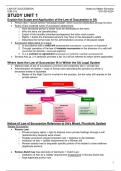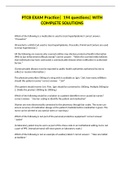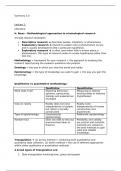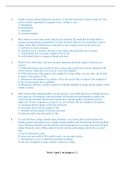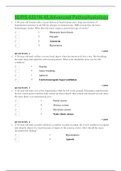Summary
Summary IURI 313 Law of Succession (Study Unit 1-11)
- Institution
- North-West University (NWU)
I got 75% final mark for the module. Comprehensive summary that includes class notes, textbook notes and important information from the PowerPoints. It also includes all case law that was prescribed. Textbook = The Law of Succession in South Africa (4th edition) by Juanita Jamneck, Christa R...
[Show more]
